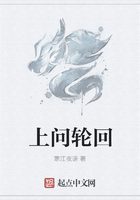LYGIA was grieved to lose Pomponia Graecina,whom she loved with her whole soul, and she grieved for the household of Aulus; still her despair passed away. She felt a certain delight even in the thought that she was sacrificing plenty and comfort for her Truth, and was entering on an unknown and wandering existence. Perhaps there was in this a little also of childish curiosity as to what that life would be,off somewhere in remote regions, among wild beasts and barbarians. But there was still more a deep and trusting faith, that by acting thus she was doing as the Divine Master had commanded, and that henceforth He Himself would watch over her, as over an obedient and faithful child. In such a case what harm could meet her? If sufferings come, she will endure them in His name. If sudden death comes, He will take her;and some time, when Pomponia dies, they will be together for all eternity. More than once when she was in the house of Aulus, she tortured her childish head because she, a Christian, could do nothing for that Crucified, of whom Ursus spoke with such tenderness.But now the moment had come. Lygia felt almost happy, and began to speak of her happiness to Acte,who could not understand her, however. To leave everything,—to leave house, wealth, the city, gardens,temples, porticos, everything that is beautiful; leave a sunny land and people near to one—and for what purpose? To hide from the love of a young and stately
knight. In Acte's head these things could not find place.At times she felt that Lygia's action was right, that there must be some immense mysterious happiness in it; but she could not give a clear account to herself of the matter, especially since an adventure was before Lygia which might have an evil ending,—an adventure in which she might lose her life simply. Acte was timid by nature, and she thought with dread of what the coming evening might bring. But she was loath to mention her fears to Lygia; meanwhile, as the day was clear and the sun looked into the atrium, she began to persuade her to take the rest needed after a night without sleep. Lygia did not refuse; and both went to the cubiculum, which was spacious and furnished with luxury because of Acte's former relations with Caesar.There they lay down side by side, but in spite of her weariness Acte could not sleep. For a long time she had been sad and unhappy, but now she was seized by a certain uneasiness which she had never felt before.So far life had seemed to her simply grievous and deprived of a morrow; now all at once it seemed to her dishonorable.
Increasing chaos rose in her head. Again the door to light began to open and close. But in the moment when it opened, that light so dazzled her that she could see nothing distinctly. She divined, merely, that in that light there was happiness of some kind, happiness beyond measure, in presence of which every other was nothing, to such a degree that if Caesar, for example,were to set aside Poppaea, and love her, Acte, again,it would be vanity. Suddenly the thought came to her that that Caesar whom she loved, whom she held involuntarily as a kind of demigod, was as pitiful as any slave, and that palace, with columns of Numidian marble, no better than a heap of stones. At last,however, those feelings which she had not power to define began to torment her; she wanted to sleep, but being tortured by alarm she could not. Thinking that Lygia, threatened by so many perils and uncertainties,was not sleeping either, she turned to her to speak of her flight in the evening. But Lygia was sleeping calmly.Into the dark cubiculum, past the curtain which was not closely drawn, came a few bright rays, in which golden dust-motes were playing. By the light of these rays Acte saw her delicate face, resting on her bare arm, her closed eyes, and her mouth slightly open. She was breathing regularly, but as people breathe while asleep.
"She sleeps,—she is able to sleep," thought Acte. "She is a child yet." Still, after a while it came to her mind that that child chose to flee rather than remain
the beloved of Vinicius; she preferred want to shame, wandering to a lordly house, to robes, jewels, and
feasts, to the sound of lutes and citharas.
"Why?"And she gazed at Lygia, as if to find an answer in her sleeping face. She looked at her clear forehead,at the calm arch of her brows, at her dark tresses, at her parted lips, at her virgin bosom moved by calm breathing; then she thought again,—"How different from me!"Lygia seemed to her a miracle, a sort of divine vision, something beloved of the gods, a hundred times more beautiful than all the flowers in Caesar's garden,than all the statues in his palace. But in the Greek woman's heart there was no envy. On the contrary, at thought of the dangers which threatened the girl, great pity seized her. A certain motherly feeling rose in the woman. Lygia seemed to her not only as beautiful as a beautiful vision, but also very dear, and, putting her lips to her dark hair, she kissed it.But Lygia slept on calmly, as if at home, under the care of Pomponia Graecina. And she slept rather long.Midday had passed when she opened her blue eyes and looked around the cubiculum in astonishment.Evidently she wondered that she was not in the houseof Aulus.
"That is thou, Acte?" said she at last, seeing in the darkness the face of the Greek.
"I, Lygia."
"Is it evening?"
"No, child; but midday has passed."
"And has Ursus not returned?"
"Ursus did not say that he would return; he said that he would watch in the evening, with Christians, for the litter."
"True."
Then they left the cubiculum and went to the bath, where Acte bathed Lygia; then she took her to breakfast and afterward to the gardens of the palace,in which no dangerous meeting might be feared,since Caesar and his principal courtiers were sleeping yet. For the first time in her life Lygia saw those magnificent gardens, full of pines, cypresses, oaks,olives, and myrtles, among which appeared white here and there a whole population of statues. The mirror of ponds gleamed quietly; groves of roses were blooming, watered with the spray of fountains;entrances to charming grottos were encircled with a growth of ivy or woodbine; silver-colored swans were sailing on the water; amidst statues and trees wandered tame gazelles from the deserts of Africa, and richcolored birds from all known countries on earth.
The gardens were empty; but here and there slaves were working, spade in hand, singing in an undertone;others, to whom was granted a moment of rest, were sitting by ponds or in the shade of groves, in trembling light produced by sun-rays breaking in between leaves;others were watering roses or the pale lily-colored blossoms of the saffron. Acte and Lygia walked rather long, looking at all the wonders of the gardens; and though Lygia's mind was not at rest, she was too much a child yet to resist pleasure, curiosity, and wonder.It occurred to her, even, that if Caesar were good, he might be very happy in such a palace, in such gardens.But at last, tired somewhat, the two women sat down on a bench hidden almost entirely by dense cypresses and began to talk of that which weighed on their hearts most,—that is, of Lygia's escape in the evening. Acte was far less at rest than Lygia touching its success.At times it seemed to her even a mad project, which could not succeed. She felt a growing pity for Lygia.It seemed to her that it would be a hundred times safer to try to act on Vinicius. After a while she inquired of Lygia how long she had known him, and whether she did not think that he would let himself be persuaded to return her to Pomponia.
But Lygia shook her dark head in sadness. "No. In Aulus's house, Vinicius had been different, he had been very kind, but since yesterday's feast she feared him, and would rather flee to the Lygians.
"But in Aulus's house," inquired Acte, "he was dear to thee, was he not?"
"He was," answered Lygia, inclining her head.
"And thou wert not a slave, as I was," said Acte,after a moment's thought. "Vinicius might marry thee.Thou art a hostage, and a daughter of the Lygian king.Aulus and Pomponia love thee as their own child; I am sure that they are ready to adopt thee. Vinicius might marry thee, Lygia."
But Lygia answered calmly, and with still greater sadness, "I would rather flee to the Lygians.
"Lygia, dost thou wish me to go directly to Vinicius,rouse him, if he is sleeping, and tell him what I have told thee? Yes, my precious one, I will go to him and say,'Vinicius, this is a king's daughter, and a dear child of the famous Aulus; if thou love her, return her to Aulus and Pomponia, and take her as wife from their house.'"
But the maiden answered with a voice so low that Acte could barely hear it,—
"I would rather flee to the Lygians." And two tears were hanging on her drooping lids.
Further conversation was stopped by the rustle of approaching steps, and before Acte had time to see who was coming, Poppaea Sabina appeared in front of the bench with a small retinue of slave women.Two of them held over her head bunches of ostrich feathers fixed to golden wires; with these they fanned her lightly, and at the same time protected her from the autumn sun, which was hot yet. Before her a woman from Egypt, black as ebony, and with bosom swollen as if from milk, bore in her arms an infant wrapped in purple fringed with gold. Acte and Lygia rose,thinking that Poppaea would pass the bench without turning attention to either; but she halted before them and said,—"Acte, the bells sent by thee for the doll were badly fastened; the child tore off one and put it to her mouth; luckily Lilith saw it in season."
"Pardon, divinity," answered Acte, crossing her arms on her breast and bending her head.
But Poppaea began to gaze at Lygia.
"What slave is this?" asked she, after a pause.
"She is not a slave, divine Augusta, but a foster child of Pomponia Graecina, and a daughter of the Lygian king given by him as hostage to Rome."
"And has she come to visit thee?"
"No, Augusta. She is dwelling in the palace since the day before yesterday."
"Was she at the feast last night?"
"She was, Augusta."
"At whose command?"
"At Caesar's command."
Poppaea looked still more attentively at Lygia, who stood with bowed head, now raising her bright eyes to her with curiosity, now covering them with their lids.Suddenly a frown appeared between the brows of the Augusta. Jealous of her own beauty and power, she lived in continual alarm lest at some time a fortunate rival might ruin her, as she had ruined Octavia. Hence every beautiful face in the palace roused her suspicion. With the eye of a critic she took in at once every part of Lygia's form, estimated every detail of her face, and was frightened. "That is simply a nymph," thought she,"and 'twas Venus who gave birth to her." On a sudden this came to her mind which had never come before at sight of any beauty,—that she herself had grown notably older! Wounded vanity quivered in Poppaea,alarm seized her, and various fears shot through her head. "Perhaps Nero has not seen the girl, or, seeing her through the emerald, has not appreciated her. But what would happen should he meet such a marvel in the daytime, in sunlight? Moreover she is not a slave,she is the daughter of a king,—a king of barbarians, it is true, but a king. Immortal gods! she is as beautiful as I am, but younger!" The wrinkle between her brows increased, and her eyes began to shine under their golden lashes with a cold gleam.
"Hast thou spoken with Caesar?"
"No, Augusta."
"Why dost thou choose to be here rather than in the house of Aulus?"
"I do not choose, lady. Petronius persuaded Caesar to take me from Pomponia. I am here against my will."
"And wouldst thou return to Pomponia?"
This last question Poppaea gave with a softer and milder voice; hence a sudden hope rose in Lygia's heart."Lady," said she, extending her hand to her, "Caesar promised to give me as a slave to Vinicius, but do thou intercede and return me to Pomponia."
"Then Petronius persuaded Caesar to take thee from Aulus, and give thee to Vinicius?"
"True, lady. Vinicius is to send for me to-day, but thou art good, have compassion on me." When she had said this, she inclined, and, seizing the border of Poppaea's robe, waited for her word with beating heart.Poppaea looked at her for a while, with a face lighted by an evil smile, and said,—"Then I promise that thou wilt become the slave of Vinicius this day." And she went on, beautiful as a vision, but evil. To the ears of Lygia and Acte came only the wail of the infant, which began to cry, it was unknown for what reason.
Lygia's eyes too were filled with tears; but after a while she took Acte's hand and said,—"Let us return.Help is to be looked for only whence it can come."And they returned to the atrium, which they did not leave till evening.
When darkness had come and slaves brought in tapers with great flames, both women were very pale.Their conversation failed every moment. Both were listening to hear if some one were coming. Lygia repeated again and again that, though grieved to leave Acte, she preferred that all should take place that day, as Ursus must be waiting in the dark for her then. But her breathing grew quicker from emotion,and louder. Acte collected feverishly such jewels as she could, and, fastening them in a corner of Lygia's peplus, implored her not to reject that gift and means of escape. At moments came a deep silence full of deceptions for the ear. It seemed to both that they heard at one time a whisper beyond the curtain, at another the distant weeping of a child, at another the barking of dogs.
Suddenly the curtain of the entrance moved without noise, and a tall, dark man, his face marked with small-pox, appeared like a spirit in the atrium. In one moment Lygia recognized Atacinus, a freedman of Vinicius, who had visited the house of Aulus.
Acte screamed; but Atacinus bent low and said,—"A greeting, divine Lygia, from Marcus Vinicius, who awaits thee with a feast in his house which is decked in green."
The lips of the maiden grew pale.
"I go," said she.
Then she threw her arms around Acte's neck in farewell.















